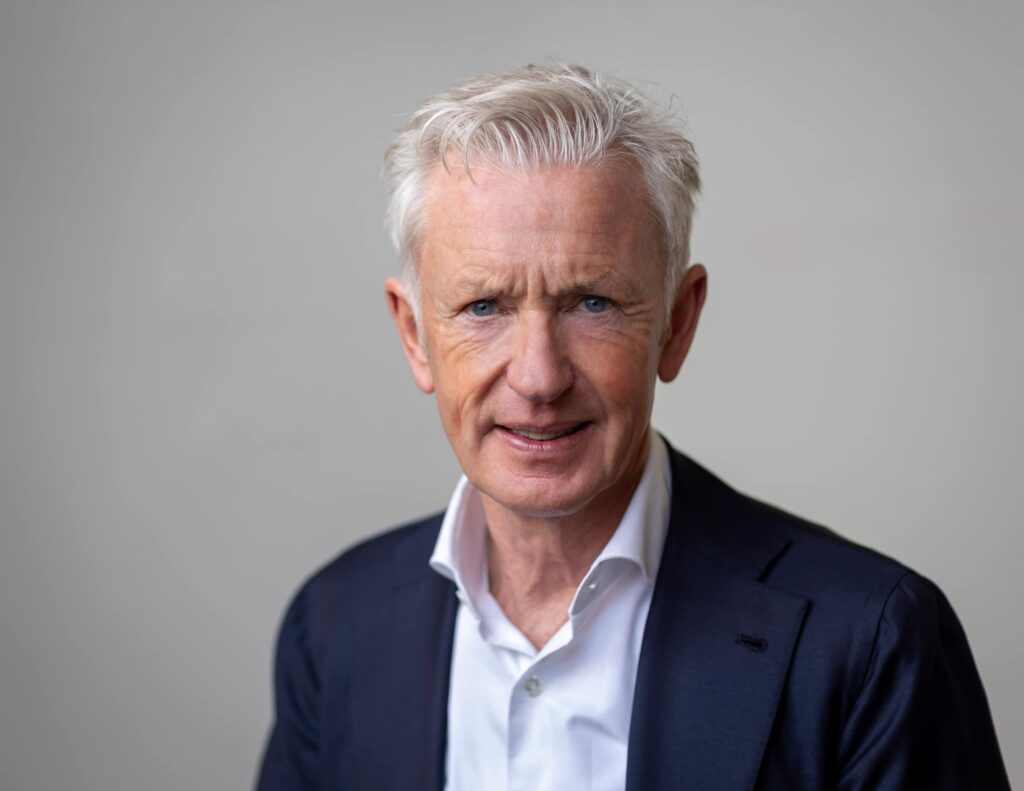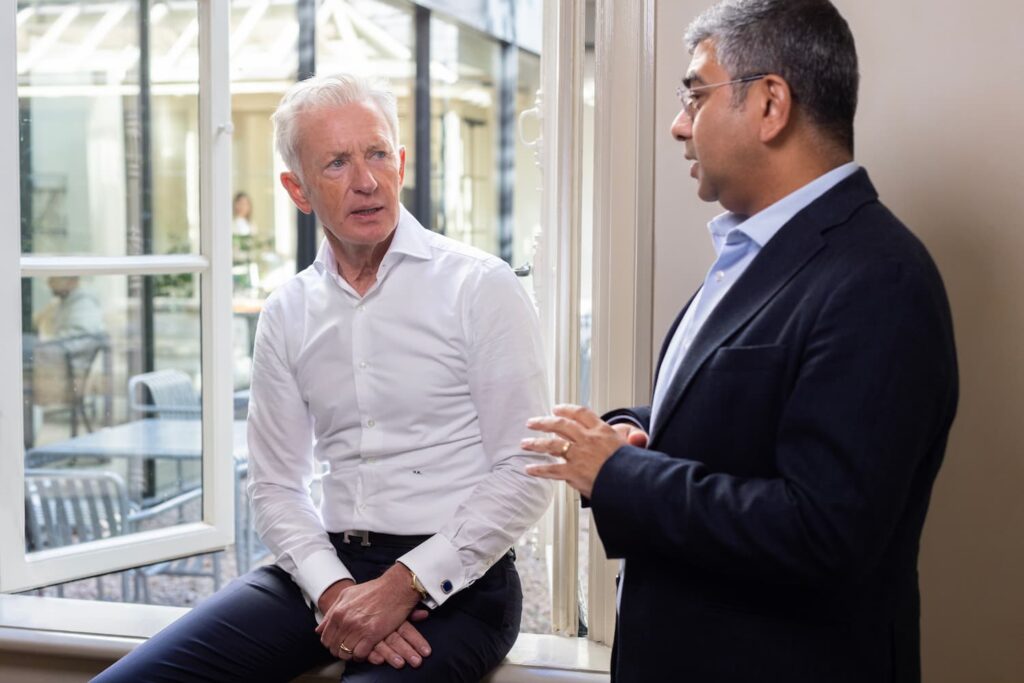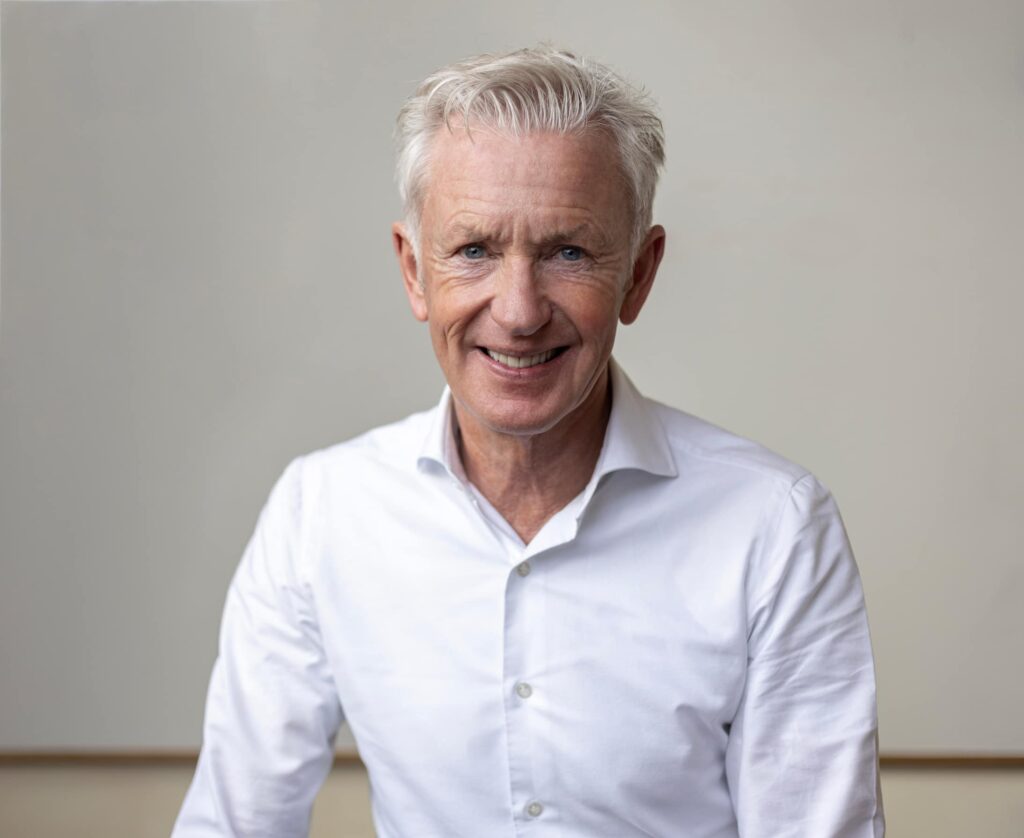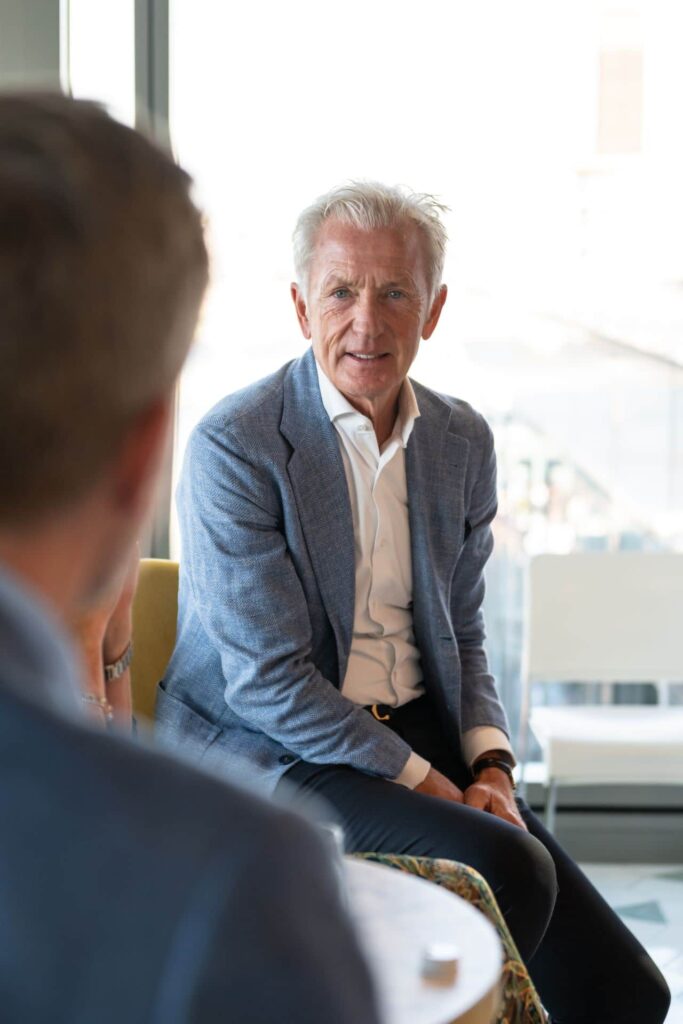
Hein Knaapen | Senior Partner | CEO Works
Hein Knaapen is a seasoned leader in Human Resources with 40 years of experience in the field, including 35 years in major corporations and 15 years serving as a Chief HR Officer. Today, he works as a Senior Partner at CEO Works, a boutique consulting firm that supports CEOs and CHROs in creating enterprise value through highly focused talent decisions. His journey has been defined by a consistent belief: HR’s greatest contribution to business success comes from enhancing the skills and competencies of managers. At EliteX, we are proud to have Hein Knaapen as Cover Story of the edition: Prominent HR Leaders to Follow, 2025.
Hein’s entry into HR wasn’t planned. Like many professionals, he found his way into the field by chance. But once he began, he quickly grew to enjoy the work. As his roles became more challenging and interesting, he started to realize the power of HR in shaping business outcomes. He discovered that by improving managerial capabilities, HR could directly influence company performance. Looking back, he is confident that he made the right career choice.
“Technology is important, but it’s only a tool. Our real mission is staying relevant to customers.”
His career started in Europe, where he spent the first 20 years at Unilever. There, he took on various roles in talent attraction and general HR functions. He then moved on to become the Chief HR Officer of a regional telecom company in Europe. After that, Hein transitioned to the banking sector, eventually serving as Chief HR Officer at ING Bank in Amsterdam for eight years. While these roles were fulfilling, Hein wanted to explore a broader way to create impact. Instead of working within one company, he chose to work with several organizations, helping CEOs and HR leaders unlock value through strategic talent management. For him, enterprise value represents not just financial figures but the balance between customer relevance and operational efficiency.
As a leader, Hein has a clear philosophy. He believes that HR must stay grounded in business realities. In a world filled with exciting tools and new solutions, HR professionals can be tempted to chase trends. But Hein urges them to always ask a simple question: “Does this contribute to business performance?” Through decades of experience, he has seen one thing make a lasting impact—investing in the development of managers. It is this focus on enhancing real capabilities that drives performance, rather than flashy leadership programs or abstract concepts.

Today, HR professionals face serious challenges. Labor markets are tight, and companies struggle to find the right people. According to Hein, one of the main problems is that many businesses focus only on the supply side of talent—meaning they look for good people without first understanding what exactly the role needs. Hein encourages a demand-driven approach: first, define the outcomes a role must deliver, and then find the capabilities required to achieve them. In his words, talent management should shift to “capability management,” where the focus is not only on individuals but on ensuring the company always has access to the right skills.
Hein also has a very pragmatic view of company culture. While culture is often described in vague and inspirational terms, Hein sees it as a collection of behaviors. To truly change or improve culture, organizations must identify which behaviors help the business succeed and which ones hold it back. He emphasizes that culture should not be forced into a new mold but instead refined in a way that respects the company’s history while preparing it for the future. In this process, three elements remain non-negotiable: following laws and regulations, ensuring human dignity at work, and maintaining company performance.

“Don’t be afraid of people leaving. Focus on making them more valuable while they’re with you.”
When it comes to employee engagement, Hein brings the discussion back to the role of managers. Studies have shown that about 70% of engagement differences across teams come down to the direct manager. So, rather than launching broad engagement programs, Hein recommends investing in management training and skill-building. Strong managers are the engine of the company—and it’s through their development that HR can see the biggest return on investment.
In his view, a mature talent strategy serves both the company and the employee. It ensures the organization has the capabilities it needs to succeed, while also helping employees grow in a way that strengthens their independence. Hein strongly believes that companies should not fear people leaving. Rather, they should focus on making each individual more valuable—both within the company and in the wider job market. This creates an environment where employees continue learning, remain agile, and feel empowered in their own careers.
On the topic of career development, Hein makes an important distinction. While individuals are responsible for their own careers and lives, companies have the responsibility to create the conditions for continuous learning. Companies must support employees in staying employable, competitive, and skilled—this is part of respecting their dignity and value.
As technology transforms every aspect of work, Hein acknowledges its importance. But again, he is clear in his message—technology is a tool, not the goal. For HR professionals, the mission remains unchanged: help the business stay relevant to customers. Technology should be embraced as a way to achieve this goal more effectively, but never allowed to distract from the human side of the business. Change is constant in the modern workplace. Hein says that helping teams through change requires three key ingredients: clarity, purpose, and recognition. Leaders must be able to explain why change is happening, how it connects to a greater purpose, and recognize the efforts of their people along the way. These qualities build trust and allow employees to embrace transformation more openly.
One of Hein’s proudest achievements came during his time at ING Bank. The CEO had proposed a new set of values, but Hein offered a different approach. Instead of vague ideals, they surveyed employees to identify which behaviors were helping the company and which were getting in the way. The result was a clear, one-page summary that gave the entire organization a roadmap for improvement. It celebrated what people were doing well and provided focus on what needed to change. Alongside this, Hein helped design a practical leadership program that focused not on abstract leadership traits but on building real management skills. The result was a significant increase in employee engagement and performance.
“The most powerful way HR can help a company is by improving the skills and competencies of its managers.”

Balancing employee needs with company goals, Hein says, starts with being clear about what success looks like. When people understand what they’re working toward and how it benefits both the business and their own development, a natural alignment occurs. He believes the best thing a company can do is keep people learning and growing so they are never fully dependent on the organization. This creates a culture of mutual respect and shared success.
When it comes to hiring future HR leaders, Hein looks for a few key traits. First, a natural understanding of how companies work and what drives performance. Second, the ability to focus on what truly matters, avoiding distractions. Third, independent thinking—a willingness to listen to business leaders while also confidently offering insights on people strategy.
For those entering the HR profession, Hein offers honest advice. If someone wants to join HR simply because they care about people, that may not be enough. HR is not just about being kind or supportive—it’s about helping businesses perform better through smart people strategies. If young professionals understand that mission and are motivated by it, they are more likely to be successful and fulfilled in their careers.
Throughout his journey, Hein has been shaped by both HR peers and business leaders. He values those who helped him focus on what truly matters and resist the lure of popular but ineffective trends. Their guidance taught him to stay committed to impact and results, even when the latest buzzwords said otherwise.
Outside of work, Hein keeps life balanced through running, classical music, and deep conversations. He runs 10 kilometers three times a week in a nearby park, which keeps him healthy and gives him space for uninterrupted thinking. He finds peace and joy in listening to music and spending time with friends over good food and thoughtful discussions.
Hein Knaapen’s story is one of focus, insight, and human connection. With decades of experience, he continues to shape the future of HR by helping leaders and companies unlock the full potential of their people—not through trends or quick fixes, but through clarity, purpose, and disciplined execution.